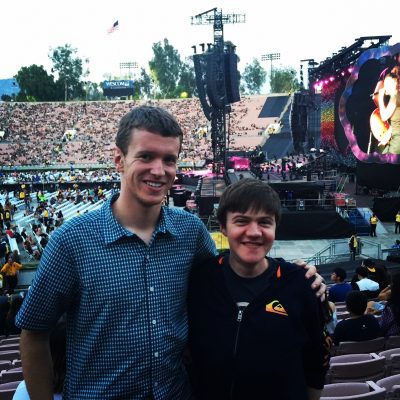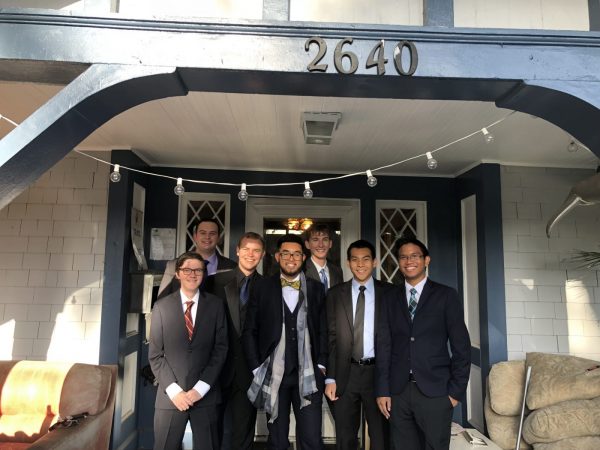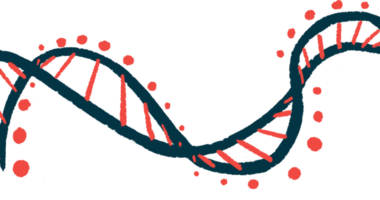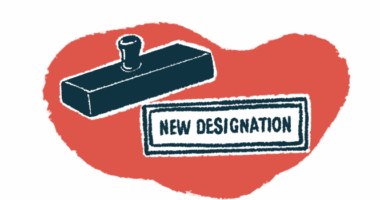The Art of Asking for Help

My mom used to shake me awake in the morning, cook me breakfast, and send me off to school with a packed lunch. She made sure I took all my pills, ate vegetables, and had consistent physical therapy. My dad and some teachers acted as my arms and legs to help me get to places I could not have on my own. All I had to worry about was doing well in school, hanging out with friends, and playing video games.
When I started school at the University of Southern California (USC) and lived on campus, my mom was no longer there to predict my every need. The only way my new living arrangements have worked has been through my ability to gauge needs and ask for help when appropriate. I can still walk and do most of my self-care, but anything requiring normal muscle strength is out of the question: I can’t make my bed, do my laundry, stretch myself every day, cook dinner, or stand up from regular chairs.
Connect with other people and share tips on how to manage Muscular Dystrophy in our forums!
In my first two years at USC, I lived with my best friend since kindergarten, Michael Rouleau. I would not have been able to succeed if not for Michael’s support and willingness to help me. There weren’t a lot of people who cared for me in the way he did. During one fire alarm, which thankfully turned out to be a false alarm, he did not hesitate to make sure I got out of the building safely, carrying me down the stairs on his back. Michael is a friend who helps me without question when I need it most.
Throughout my junior and senior years, I’ve lived at a house a 10-minute walk away from campus with 13 other guys. No, it’s not a frat house. Quite the opposite, actually. Most of the people who live here are Christians, and several are part of the campus ministry group Christian Challenge. Each of them has been willing to help me, either by stretching me late at night, helping me shop for groceries, lifting heavy packages for me, or even offering to cook. Without Michael or my housemates, my experience would have been very different at USC. It would have been lonely and I could not have endured.
It helps to have supportive friends, but it’s also extremely important to humble myself and allow them to assist me with my daily needs. How can they know what I need if I don’t tell them? I would love to do everything on my own and not rely on other people, but that’s not the hand that was dealt to me.
It would be easier not to have to ask uncomfortable questions: “Can you help me get off the toilet?” “Can you help me get out of this chair?” “Can you pick up the book I just dropped?” There’s also physical discomfort. Stretching requires a lot of physical contact, which can be awkward at first for my friends and me.
Some might not think any of that is uncomfortable, but I still feel like I burden people every time I ask for help. Beneath it all, I still have self-esteem issues. I wonder if getting help on things people take for granted makes others think less of me. Can I be a normal person without doing all of this on my own? I fear people will take pity on me and treat me differently than others. Every time I allow these thoughts to enter my head, I’m letting myself and my disease get in the way of my life.
Most of the time, my fears don’t become reality and those thoughts quickly dissipate. What seems like a lot to me is almost nothing to someone else. No one has failed to help me when I ask. I’ve had to ask strangers to help me get lunch meat from the top refrigerated shelf at a grocery store, fill up my tank at the gas station, and open doors for me. So far, they’ve all said yes. If anyone says no, that’s just their problem. Find the next person.
A huge part of living a successful, independent life with Duchenne muscular dystrophy is determining what your needs are without your parent or guardian, and humbly directing people around you who are willing to help. It’s taken me years to overcome the fear of asking others, but doing so has allowed me to live with Duchenne on my own terms.
***
Note: Muscular Dystrophy News is strictly a news and information website about the disease. It does not provide medical advice, diagnosis or treatment. This content is not intended to be a substitute for professional medical advice, diagnosis, or treatment. Always seek the advice of your physician or another qualified health provider with any questions you may have regarding a medical condition. Never disregard professional medical advice or delay in seeking it because of something you have read on this website. The opinions expressed in this column are not those of Muscular Dystrophy News or its parent company, Bionews Services, and are intended to spark discussion about issues pertaining to muscular dystrophy.









Sonali
I really relate to this sentiment, living with LGMD. I still struggle to ask for help but have been better about dividing up responsibilities amongst the people that are here to support me (as well as strangers) in order to achieve the task at hand. Thanks for sharing!